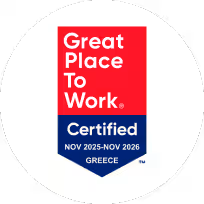How EV Charging Is Transforming Hospitality

Discussion with Klement Kralj
As guest expectations evolve and sustainability becomes a business imperative, hotels and resorts are facing a new kind of challenge, and opportunity, right outside their front doors. Klement Kralj, an electrical engineer with over a decade of experience in e-drives and the automotive sector, is now leading a transformative effort in the EV charging space through his company, Remea. His focus: helping hospitality businesses deliver seamless, scalable, and smart charging solutions that align with modern travel behaviors. In this article, he shares a roadmap for C-level executives to turn EV charging into a strategic advantage.
EV Charging Meets Hospitality, A Competitive Edge
For years, the hospitality industry has competed on comfort, service, and amenities. But as electric vehicles become more common, a new amenity is shaping guest decisions: EV charging—and not just any charging, but a reliable, intuitive, branded experience that begins the moment a guest arrives. “Often, the EV charger is the first point of contact between a guest and the hotel, which wasn’t the case in the past. That’s why it’s so important to provide a good experience right from that moment,” says Kralj.
Most hotels began with simple solutions like open Tesla destination chargers or staff-managed RFID cards. But these often created friction—long waits, unclear access, or technical issues. Remea saw an opportunity to elevate this touchpoint into a curated service experience that reflects the quality of the stay itself.
Hotels are uniquely positioned to integrate charging seamlessly into a guest’s stay. “A hotel is typically the final destination, where you arrive and sleep overnight. It makes perfect sense that EV charging should be part of that experience,” Kralj explains. “You arrive, you park, you sleep, that’s the ideal time to charge.”
What Makes EV Charging “Smart” in the Hospitality Sector?
For Kralj, smart charging starts with the user. “Smart charging should be customer-centric, easy to use, reliable, and able to manage the session intelligently so the car is charged when needed.”
Hotels must also manage limited power resources across competing needs—lighting, HVAC, kitchens, and now EV charging. Smart systems dynamically allocate power to avoid high costs without compromising service.
The biggest differentiator from public charging? “Integration with hotel property management systems, visibility on major charging platforms, and a design that works seamlessly for first-time users. Public charging often serves repeat customers, but hotels are attracting new EV drivers and must make charging simple for them,” says Kralj.
Breaking Down the SaaS Value Stack
Remea’s platform is built with modularity at its core, designed to serve hospitality’s unique operational needs. The baseline includes real-time monitoring and billing, but it extends into dynamic pricing, access control, energy efficiency, and even integration with on-site renewables.
"What hotels really want is automation and alignment," says Kralj. "They don’t want to train staff or manage another dashboard, they want a system that fits into their existing flow and just works."
For guests, the experience is simple. For management, it’s a layer of intelligence that allows them to offer differentiated services, such as tiered pricing for VIP guests, or time-based rates to optimize grid demand. The platform also helps hotels comply with local regulations and deliver reports on usage and efficiency, positioning them as sustainable leaders.
Hospitality’s Role in Energy Evolution
Is the hotel industry becoming an energy provider? Not quite. But the lines are starting to blur. "It’s not about selling electricity. It’s about offering a charging service," Kralj clarifies. In many regions, reselling electricity is regulated or outright prohibited. That’s why Remea structures charging as a service fee, customizable by duration, energy use, or flat rate.
This flexibility lets hotels offer free charging to some guests (such as loyalty members) while monetizing it for others. The key is visibility and control. With integration into room key cards or guest emails, hotels can easily determine who pays what, when, and how.
"Even when charging is free, it should still be tracked," Kralj advises. "Usage data helps identify misuse, manage capacity, and understand costs." Treating EV charging as a managed service, not just an outlet on the wall, unlocks its strategic potential.
Overcoming Deployment Hurdles
Scaling a tech solution across multiple properties sounds good in theory. In practice, it's complex. Remea tackled this by building its platform around the open OCPP protocol, making it compatible with most chargers. But integration challenges often extend beyond hardware. "Each market has its quirks; billing requirements, fiscal rules, internal procurement standards," says Kralj. "You can’t take a one-size-fits-all approach."
More critically, successful rollouts hinge on training and onboarding. One major hospitality group dropped Remea, not because of a tech failure, but because staff weren’t properly trained. "We learned the hard way that success depends on people as much as systems," Kralj reflects. Today, onboarding and support are part of every deployment plan.
The Shift Toward Monetization
Free EV charging started as a great marketing play—attract early adopters, promote sustainability, and create goodwill. But as usage increases, so do the costs and the risks of misuse. Non-guests parking for hours, energy costs climbing, and guest frustration over unavailable chargers are all symptoms of an unmanaged system.
Remea’s approach is not to eliminate free charging, but to control it. Hotels can define which guests get access, for how long, and under what terms. This way, loyalty perks remain intact, while resources are preserved for paying customers.
"We see charging as more than a utility. It’s a lever," says Kralj. Whether it's a paid add-on, a bundled perk, or a tracked benefit, charging becomes part of a wider strategy to deliver value, increase operational transparency, and reduce misuse.
Data-Driven Differentiation
As the market matures, hoteliers are asking smarter questions about EV infrastructure. Not just uptime and kilowatt-hours, but: Who is charging? Are they overnight guests? Day visitors? Are they coming back? "We’re already helping clients map behavior to outcomes," Kralj says. "That means using data to inform loyalty programs, optimize power usage, and right-size infrastructure investments."
Longer term, EV charging data can become a core asset. Hotels may offer loyalty charging benefits or upsell services during charging sessions. With deeper insight into guest behavior, EV infrastructure evolves from cost center to competitive edge.
Future Horizons: Integration, Modularity, and the Road Ahead
Remea is already expanding into adjacent markets, such as workplace charging and renewable energy integration. But Kralj is quick to note that their growth is guided not by hype, but by client needs. "We’re a sailboat, not a tanker. We adjust based on where the wind is blowing," he says. Their roadmap is six to twelve months long and driven by real use cases, not speculative forecasts.
Still, the opportunity is clear. Smart charging is just the beginning. From integrated solar to dynamic pricing, loyalty rewards to smart building systems, EV infrastructure is becoming a platform for innovation—and hotels are in the driver’s seat.
Executive Takeaways
Here’s what matters most, according to Kralj, when turning EV charging into a strategic advantage for your hospitality brand:
- Smart EV charging is a high-impact guest service that shapes brand perception and loyalty from the first moment of arrival.
- Automation, data, and modular design are essential for managing multi-property infrastructure efficiently and sustainably.
- Strategic monetization and guest access control turn EV charging into a revenue opportunity, not just a cost.
As electric mobility scales and guest expectations evolve, hospitality leaders have a clear path to lead—not follow. With the right tools and mindset, EV charging can power more than just cars; it can power the next phase of hospitality innovation.
-p-1600.avif)










.avif)









-01.avif)


